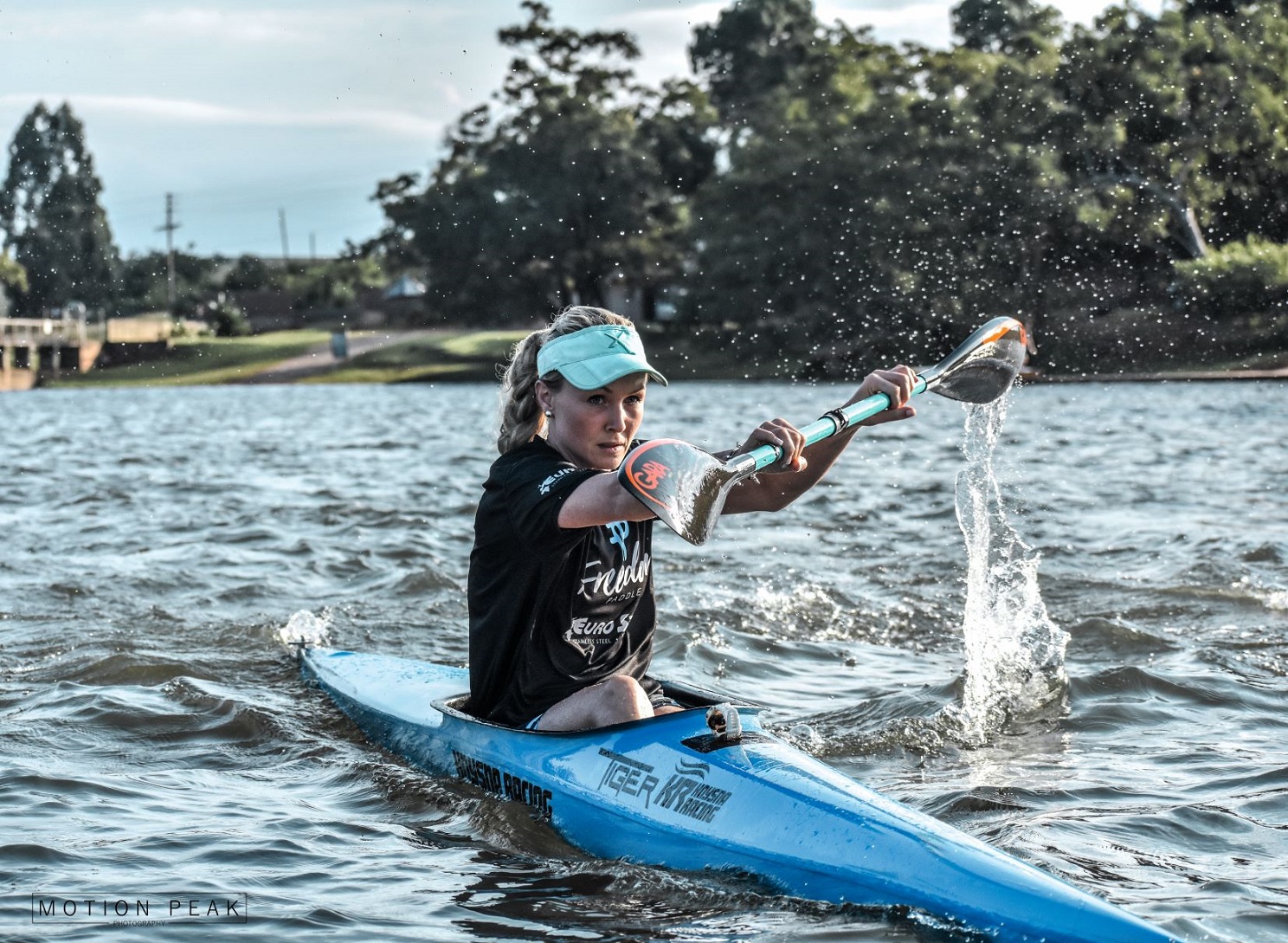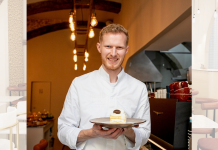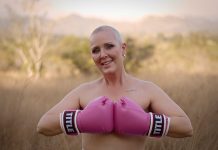Petite and polished, hairstylist Erichia Pretorius is not what comes to mind when you think of a canoe on a large stretch of water. We catch up with her on her return from False Bay, where she has added sea paddling to her list of talents.
Get It Lowveld (GIL): Tell us a bit about yourself.
Erichia (E): I was born in Mbombela and grew up here. I love the heat and outdoor activities available to us. A few of my favourites are hiking, paddling and visiting the Kruger Park.
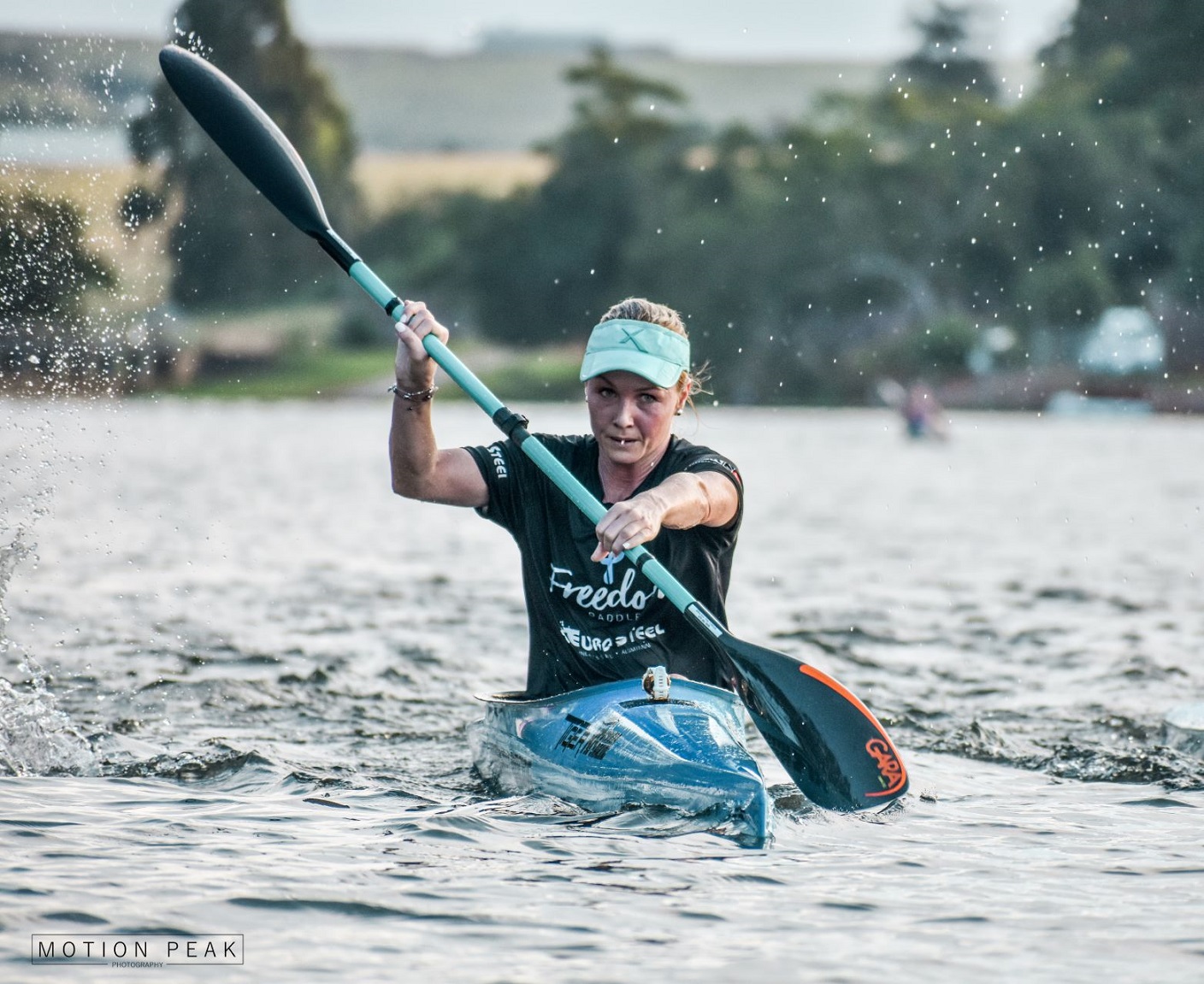
GIL: What made you decide to take up paddling?
E: I was introduced to paddling in 2008 and it changed my life. It taught me a lot about myself, about endurance and dedication. My motto is, “Life is very much like paddling down a river; if you don’t paddle faster than the current, the river will do whatever it wants with you”.
GIL: You have a little girl who loves to paddle with you. How old is she and why do you think it’s important for her to be involved?
E: I have an adventurous four-year-old daughter called Elri, who recently started paddling in her own little canoe. I have always tried to involve her wherever I go; whether it’s watching me compete in the Dusi Canoe Marathon, paddling on the ocean or training at the dam, she has been there watching my every move. I believe the exposure will have a lifelong impact on her outlook on life. She has even joined me on numerous occasions in the back of a double canoe, enjoying the scenery around the dam while I get some training done. She has her own life jacket and wetsuit, and recently received her own little paddle for her birthday.
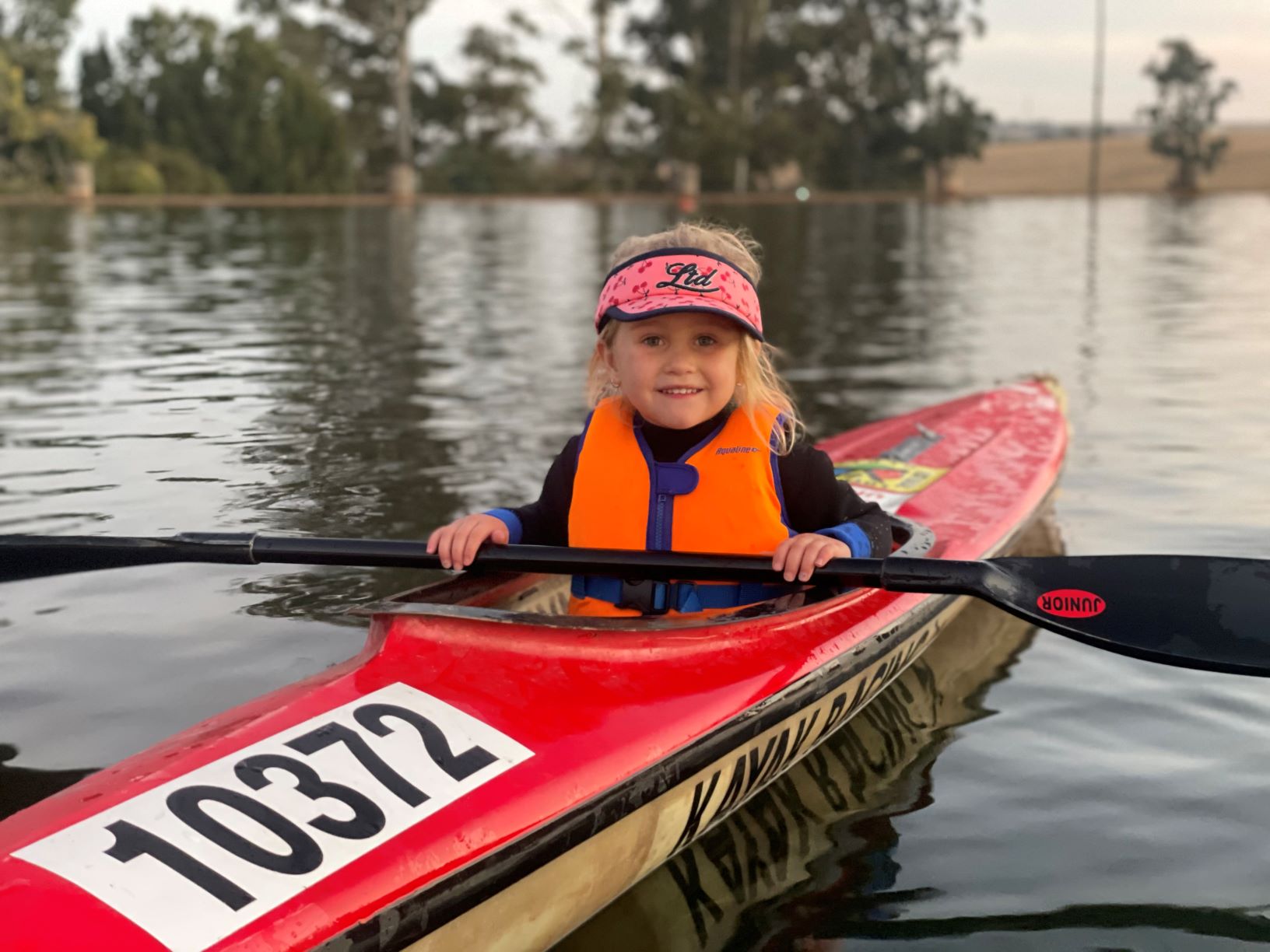
GIL: How often do you go on the water?
E: It all depends on time. Some weeks I get to paddle only once or twice and other times up to four times. If I can’t train on the dam, I walk or do some other form of exercise.
GIL: You have a full-time career as a hairstylist. How do you balance being a mum, working full-time and being a successful sportswoman?
E: It’s a fine balance indeed. I think my priorities are firstly to be the best mum I can be, and in saying that, I try to be an involved parent. To build and further my career sometimes means taking the necessary time I need for myself, but I firmly believe that it is also my duty as a mother to teach Elri the essential life skills that sport teaches us, such as determination, discipline, resilience and self-love.
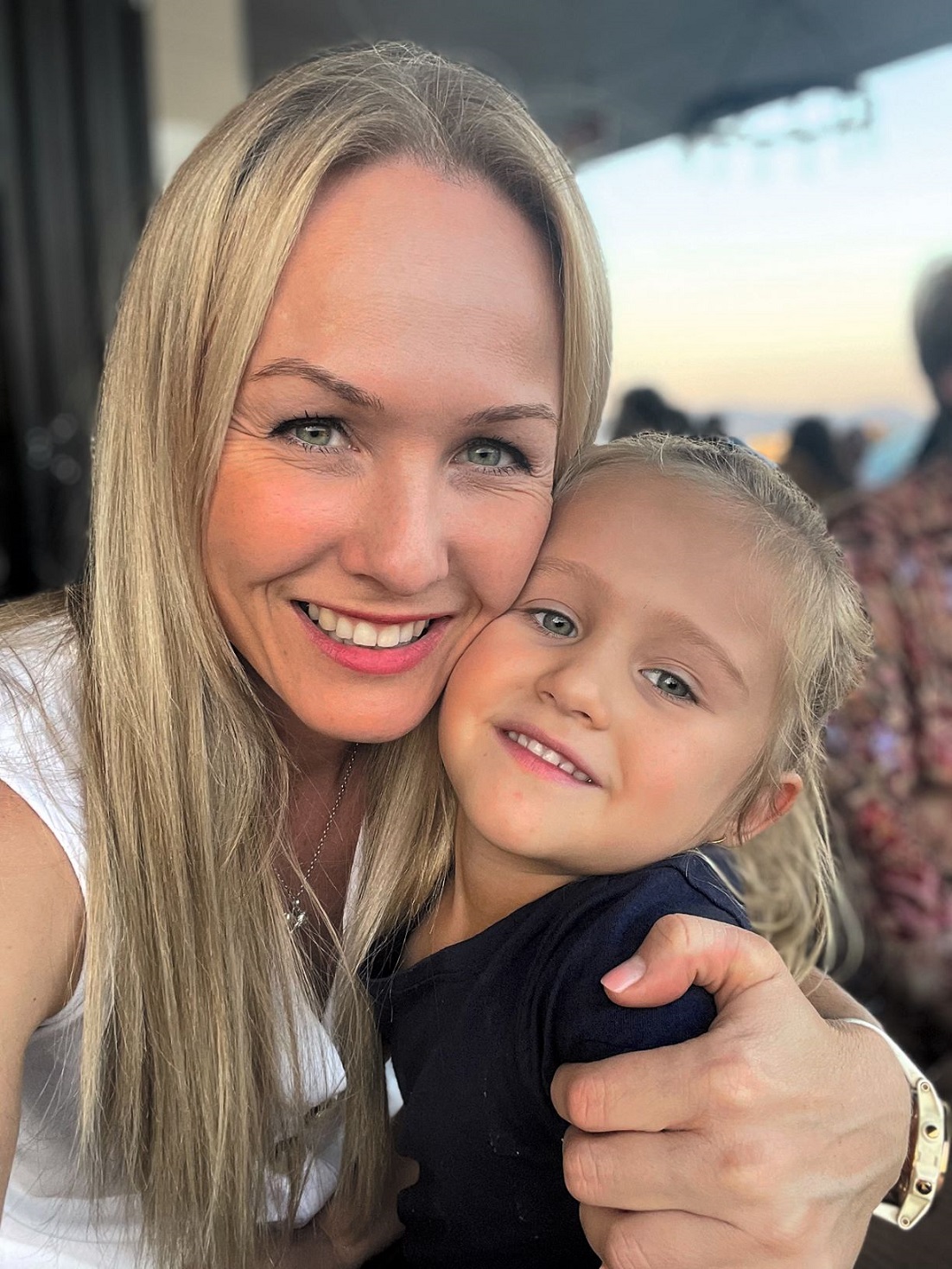
GIL: Do you think paddling is perceived as a man’s sport?
E: It might be the perception, but there are many gutsy woman paddlers in our country and internationally whom I admire. I have always been a strong, composed person who thrives on challenges. I don’t see myself as female when I’m paddling, but as an individual who is pushing against my own abilities in a quest to become better and stronger.
GIL: Do you find people treat you (and other female paddlers) any differently than the men?
E: In a way, yes, and in a way, no. We are respected as sportswomen, but respect is
earned. We always join training sessions with the guys and sometimes burst our hearts to keep up, which results in us being pushed beyond what we think we can achieve. It is a tough sport, though, so competitive ladies compete hard with no frills, and it gives us great satisfaction when we beat some of the guys.
GIL: Speaking of excelling, please tell our readers about the Berg River.
E: The Berg River is a gruelling race, where you paddle from the Paarl in the Cape to Veldrift at the sea. It stretches over 240km, completed in over four days in a single canoe. The weather conditions are tough and icy cold, as it is held in July with lots of rain and wind. Women make up only 10% of the field and in 2010, I was crazy enough to be the first woman to enter from the Lowveld Canoe Club, and proudly paddled over the finish line. I was told by a fellow paddler, and I quote, “This is more for the serious paddler, Erichia…” Which was all the more reason to prove I could do it.
GIL: Obviously the Berg River Marathon has been the most challenging race for you. Can you tell us why?
E: It was a mental game all the way through the race with blisters everywhere, but the training leading up to the race was even more difficult. It took months of preparation, consisting of training 20 to 30km on a Saturday and Sunday, with interval training during the week. I’m not a quitter, although I’ve aged enough now to understand the difference between quitting and being defeated, and that it’s important to know when to throw in the towel without feeling like a failure. Other tough races I have completed, like the full Iron Man in 2013 and a handful of Dusi Canoe marathons, were hard on another level, and all were great memories.
GIL: You were recently in False Bay. Tell us what it is like to be on the sea, and what makes it different to the dam or river?
E: In recent years, I’ve been introduced to sea paddling, and wow! For me it’s a combination of exhilaration and overcoming my fear for the dark blue that lurks beneath. Downwind paddling is when we paddle in the direction the wind is blowing and surf the swell generated by the wind. It is very different to river paddling, in some ways harder, because the wind and weather conditions make it extremely challenging and somewhat dangerous, especially if you capsize in cold waters and are unable to remount. My confidence and capabilities are slowly progressing, and I’m grateful to have a very patient teacher who never leaves my side when out at sea.
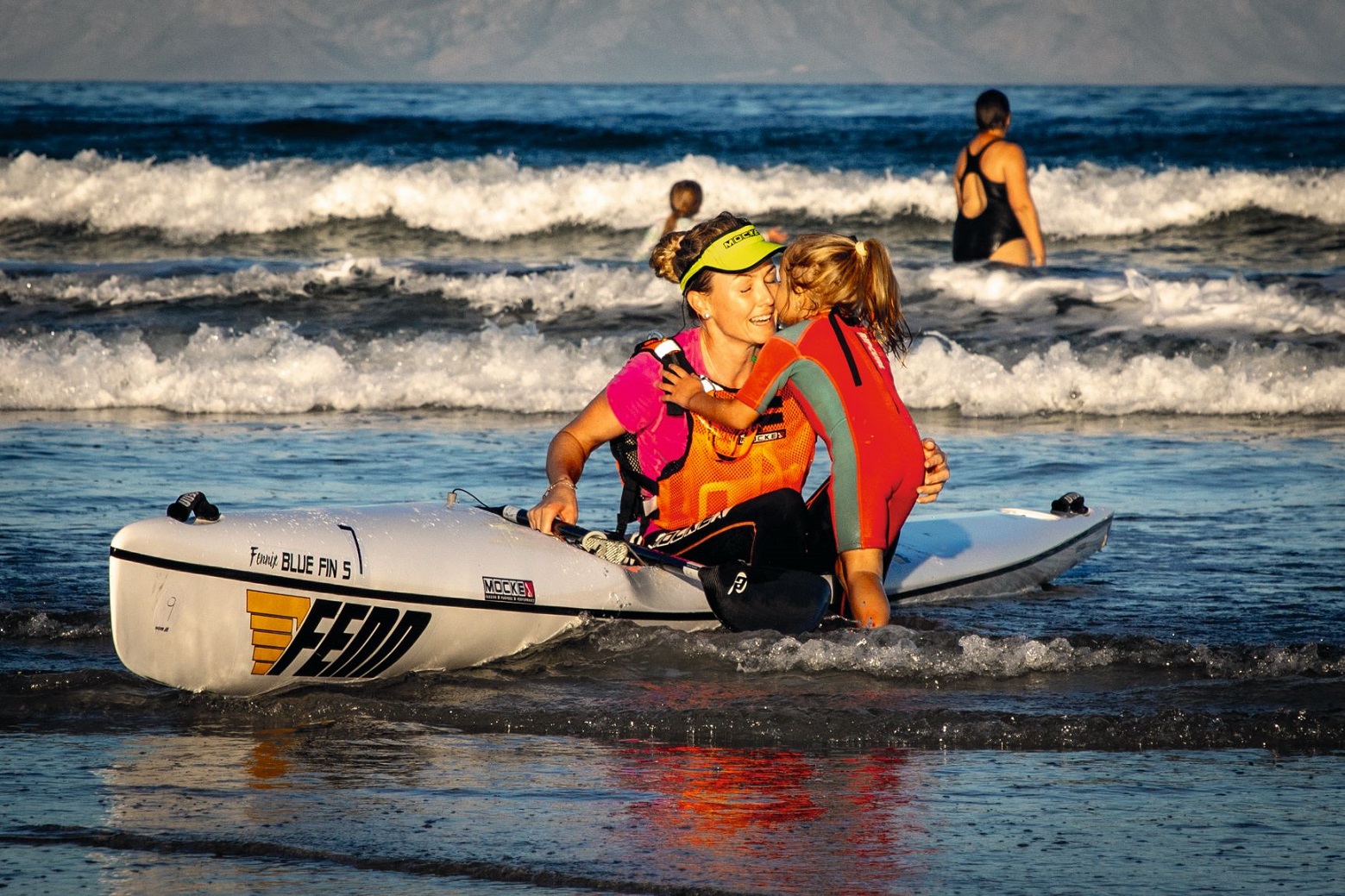
GIL: Where do you see yourself in five or 10 years’ time?
E: I would love to do the Cape Point Challenge, but a lot of work has to be done before I get there! For now I’m just enjoying it and having fun.
Details
079-692-0859
* Cover image: DIRK VAN SCHALKWYK

